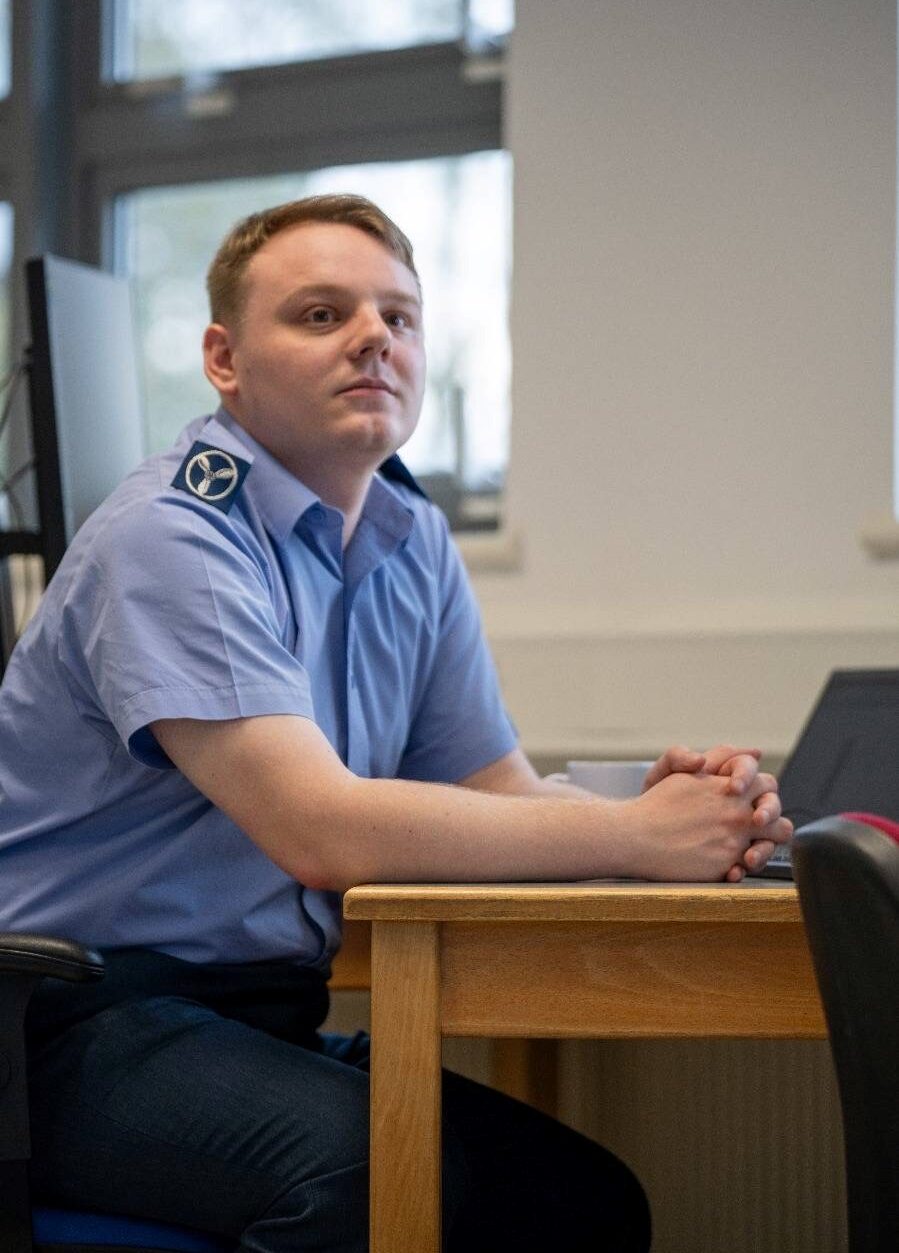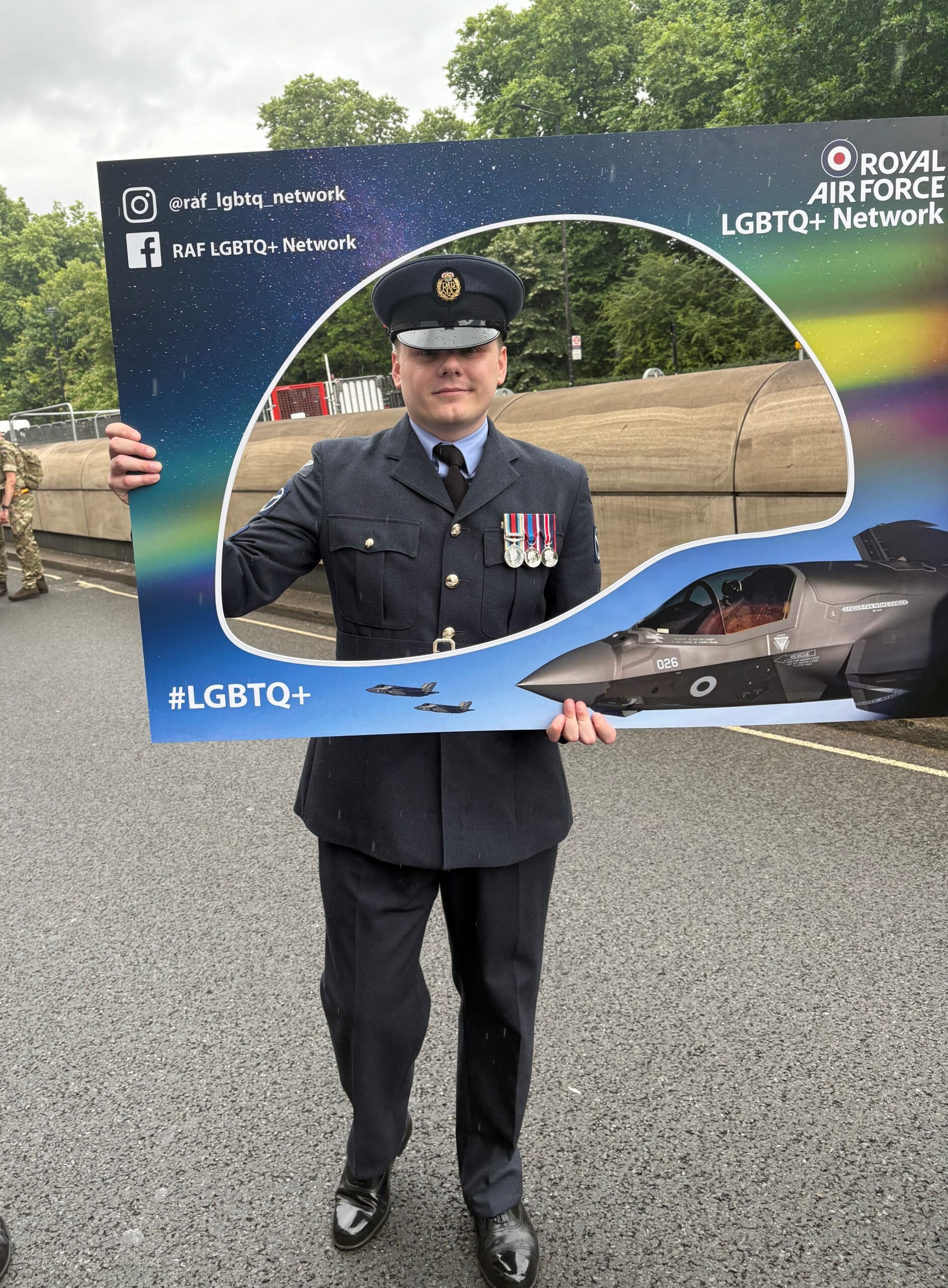
SAC Connor Thirkill
Royal Air Force
I joined the RAF in 2015 as a Cyberspace communications specialist, aged 16, long after the gay ban had been repealed. However, growing up, most of my knowledge about being gay came from limited information from mostly American TV and film. This limited exposure led me to make assumptions about gay people based on their policies at the time, like Don’t Ask, Don’t Tell. The phrase “That’s gay” was used to describe anything negative throughout my school years, combined with a lack of LGBTQ+ role models, reinforced my belief that being gay was a bad thing and that it was still not allowed in the military.
During both my Basic training and trade training, and the first year in the unit, I kept my sexuality hidden. I was worried that if people knew, I would be kicked out. In 2018, I came out during a ‘would you rather’ style game to pass the time while we were waiting for equipment to complete a process during maintenance. It wasn’t intentional; I had just answered the question without thinking. And after a moment of panic, I realised that it wasn’t actually a problem, nobody had stormed into the hangar to take me away, and that my assumptions weren’t an accurate reflection of the modern RAF.
Of course, when I first came out, it was a novelty to many colleagues. Many people asked questions about the LGBTQ+ community (and I still get questions), and some even introduced me as the “Squadron Gay” before my name was even mentioned. At the time, I hid my discomfort as best as possible because things had gone better than I had imagined. However, looking back, I should have made it clear that my sexuality was something that only I should disclose to others, if and when I wanted to.

A few people were slightly less comfortable with me after I came out, and I noticed that my sexuality had become my only notable characteristic within the section. It became the focus of all jokes and banter about me, but the fact that they could joke about it took some of the sting out of the uneasiness I felt when I realised that’s all they could see. It meant they were comfortable enough about it to make the joke.
After I came out, one person verbally harassed me for several months, but one of the Sgts within the squadron noticed and intervened. It was at that point I realised that, although there will always be people who are prejudiced, the RAF would not tolerate such behaviours, and that I could turn to my Line management for support.
Since I came out, I’ve been to 8 Pride events with Tri-Service representation and had the honour of attending the House of Commons reception for the 20th anniversary of the repeal of the ban. Reflecting on those moments, I know they are among the highlights of my career, and something I do not take for granted, knowing some of the experiences that many veterans had when they served.
Throughout my career, I’ve learnt the RAF is not perfect, after all, the people serving are only human, but looking around at many of my colleagues throughout Defence who continually champion positive change, I remain optimistic that we will continue to improve.